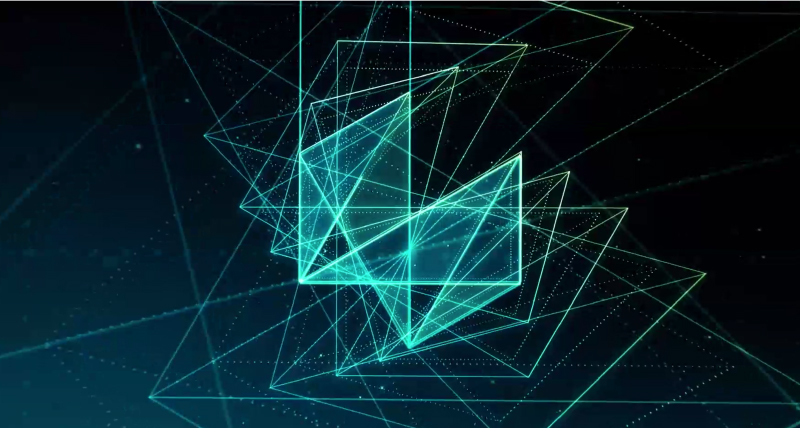Women make up only a small fraction of Reliability Leaders and Asset Managers, yet the industry offers numerous examples of vibrant, successful programmes led by women. Join Maura Abad, Global Director of Women in Reliability and Asset Management (WIRAM) with The Association of Asset Management Professionals and the Global Relationship Leader for Reliabilityweb.com, and Brian Moura, Global Portfolio Marketing Programs Manager, Operations & Maintenance at Hexagon’s Asset Lifecycle Intelligence division, as they discuss the reliability and asset management industry, how to empower more women to join the field as well as tips and tricks on how to start a career in the sector.
BM: Hi and welcome to this episode of HxGN Radio. I’m your host, Brian Moura. In today’s podcast, we’re discussing the latest trends in the reliability and asset management industry, the role women play in the industry, and how we can empower more women to join the field.
Now, joining me today is guest Maura Abad, Global Director of Women in Reliability and Asset Management or WIRAM with the Association of Asset Management Professionals and the Global Relationship Leader for Reliabilityweb.com. Thank you for speaking with us today.
MA: Thank you so much, Brian. And thank you to the team at Hexagon and HxGN Radio as well. It is my pleasure to be here with you and to explain and create a little bit of awareness regarding diversity.
BM: I’m looking forward to it. So, my first question would be could you give a short introduction of yourself and what drove you to having a career within reliability and asset management, and what does reliability and asset management entail?
MA: Thank you. Well, my name Maura Abad, I was born in Havana, Cuba. Grew up in Ecuador. I’m proud to say that I’ve been 11 years, soon to be in United States. Became American citizen five to six years ago, and that was a really important goal in my life.
My background is tourism, languages as a hobby. Right now, I’m in 10 between the ones that I speak and the ones that I know and I’m learning. But my goal in life is 13 languages because it’s my favourite number. Now, I am very deep into the human behaviour. That’s why I started narrow linguistic programming, and I’m going to be doing my MBA in Spain, in September. So, I learn so much. I am learning from you right now, learning from the things that Hexagon is doing. And that’s a very interesting thing because coming from a field of hospitality, languages, what am I doing now in reliability and asset management?
Well, life happens and I met the people regarding to this field. Terrance Lohan met me, said, “Hey, what if you are yourself and join us in reliability web?” And I really have to tell you that I combine what I know, what I continue learning with reliability and asset management, because many things are just common sense. So now people think I’m an engineer. I am learning as everybody else does. And with the Optim elements framework, we do speak the language. So, people think I also speak reliability. Now for a normal person, when someone asks me, “What is reliability?” Well, reliability is failure free operation that the machine works is what you trust. Turn the lights on, turn the car on and it works. Also, when you’re relying and sleeping on the plane and takes off, that is reliability that the asset performs the way it’s supposed to perform.
About asset management. Asset management is a coordinated set of activities with the people in the stakeholders, in the organisation to achieve the value of the organisation. If we’re not towards that goal to stores that value, then why are we even doing that activity? So again, I combine the human perspective with the reliability and asset management and never to forget the people which the right people with the right skills are the most important asset.
BM: Well, congratulations on meeting your goals. And the next question would be, what does an average day in your day-to-day work look like?
MA: It’s interesting because it’s never the same. And you know, when they said you wear different hats, I collect myself hats and I wear many, many hats. But a day in my life I really love, and I feel very passionate in what I do. So, I know you’re going to hear this, but sometimes I’m on the phone at 2:00 or 3:00 a.m. with India, Saudi Arabia, many other countries. That’s part of the passion. And really when you’re having fun, things don’t matter. Of course, we have to have that balance on help. But my day to day looks like being engaging meetings, connecting with people. Pre-COVID I used to travel 298 days a year. Now is coming back that kind of lifestyle, moving from one country to another, getting to know people and spreading the world of reliability, asset management and the human behaviour with this field. So, if you have worked with me, you know that I’m on the phone with you many hours sometimes, but it is part of that awareness and consciousness regarding our field.
BM: So, we’re meeting today to discuss the topic of women in reliability and asset management. Now women make up only a small fraction of reliability leaders and asset managers. Yet the industry offers numerous examples of vibrant, successful programmes led by women. What do you think could be done to increase the number of women in the field today?
MA: Definitely. Thank you. So, I have seen that more women are coming in the field and that’s really great news, but we need much more. I will say, starting with the awareness from everybody. Why diversity is important? Why do we even need it? Why do we even have to go there? The awareness at every level in the organisation, I will continue with that desire of continue exploring diversity and the benefits to our company. The knowledge that everybody understands that we need it, that ability to communicate under reinforcement on the messaging. I will also tell you that to increase the woman in the field, we, as women need to lift up each other and support each other. That’s a really important thing that we need to address. I will tell you also, that is being out there networking. You need to get out there, lose any fears, everybody here’s in a journey, we’re all learning.
So just do it. When you’re learning a language, my key is don’t be afraid. Just say it. And whoever speaks it will support you. That’s the idaea to grow together as a community. But I have to tell you, since I’ve been in the role nine years, I have seen the increase, the woman in the industry. Companies like yours, you have a division of woman, in mine and… So that’s what we need. Different groups of women together. It’s not about being competitive group A or group B. No, many more groups need to come out and support each other. That’s the idaea.
BM: All right. What role do you see diversity in the workplace playing within the industry? You kind of alluded to it near the last answer here, but can you expand on that a little bit?
MA: Definitely. We have done exercises about decision making and that’s our daily lives, right? We need to make decisions. And we had groups that just from one role, not too diverse, this group will make set of decisions. But when we have a diverse group, it’s essential the role of diversity because not only diversity of gender roles, but also the perspective of the overall in the industry. So, it is essential in reliability and asset management, the different stakeholders to work with that diversity, not only in decision making, but many of the fields here in different perspectives, different approaches, getting curious, going out of the box of what diversity can bring to us.
BM: Thank you for that. What value does working with other technology companies, such as Hexagon, bring for the reliability and asset management industry?
MA: The work is one, it’s decisive. It’s so important. And I always say the future is here. The future is now. When I have attended your HxGN LIVE conference, I learn so much from the different perspectives, talking about the metaverse, talking about the now and the integrity of the data and the importance of having the right information so we can have the right decisions. Not only just collecting information is what do we do with that information, and that is related to the outcome of the organisation. So, I really, again, believe that this is extremely important. That it’s extremely decisive. And I want to just make it a call of action for all of you that are listening. And if you are not in a digital journey, if you have not even started, consider the moment is now.
BM: This is a two-part question. First off, can you brief us on what WIRAM is doing? And what are the ways to stay connected with WIRAM?
MA: Definitely. Woman In Reliability and Asset Management was born because when I came into the reliability web field, many of my colleagues were, we don’t have enough diversity. We need more women in the industry. So sometimes you can talk about it, but the important piece is to do something about it. So basically I took action. I basically opened my computer, wrote a mission, the aim of the group, presented to Terrance. He said, “Go for it.” So important, the sponsorship, executive sponsorship, go for it. The first meeting I presented a concept, 10 woman attended. I’m proud to say that five, six years later, we have 950 women in the group. Now we have chapters in United States, Canada, Middle East, Antarctica, Latin America and we continue growing. We do many activities’ face-to-face. We also do hackathons, beer 12 hackathons.
We do beer 12 summits. Not only we touch base on the webinars in technical topics, but how to ask for a raise or a human capital management. A success storey was one of the days that we had a face-to-face meeting, a woman said, “Hey, I want to say thank you, Maura, because I literally ask for a raise. As soon as they finish listening to the webinar, I got it.” I said, “Look, thank you. But you did it, woman in reliability. We empower you perhaps, but you did it.” And that’s what we want to come across with because all this information you can listen at any time, you can share it with other colleagues, men, and women. The group is open for everybody to attend the webinars. It is information presented for the woman in the community, to the world. So, we are really excited and the ways to be connected, LinkedIn page group, Twitter, Facebook.
And of course, you can always find me on LinkedIn and I can review more. My favourite topic of the day is when I have a woman that have attended many webinars and suddenly says, “Maura, I have something to share.” That’s a great moment. You can be active or passive the group. Both are great, but the active way, taking that action, that’s what we need in each of us. And I agree with your CEO at Hexagon, when he mentioned many times, each of us can do a big thing to change the world. I am a 100% in agreement with that.
BM: Well, congratulations on that growing membership. Awesome job there.
MA: Thank you. It’s a team effort.
BM: Now, you mentioned a couple of tips there, but any other tips that you could have for someone looking to start a career within the reliability and asset management field?
MA: Definitely just be out there. Connect, be curious, take a look of everything that is going on for as many people as you can. Start the conversation, that’s part one, just be out there. Second, learn as much as you can, share as much as you can, whatever you learn, give it because the universe will give it back to you three times. It is, it happens. So, connect with other groups in the woman, in the industry.
Maybe you want to open your own group and that’s okay. If you need any guidance or support, let me know. The more we are, the better so we can continue spreading the word. This is a work that takes a lot of awareness, but especially lots of repetition. It’s not only one and done, but also continuation and continuation. So, I really appreciate HxGN radio, to you for your time, Brian. The people are listening. Let’s continue sharing and thank you to each of you that have attended the webinars. That this is your first time, I invite you to come to one. And thank you also for the people that you have spread the word so we can be more. Thank you.
BM: Thank you, Maura. In closing, we want to just say, we appreciate your time today and thank you for joining us and to our listeners. You can learn more and tune in to more HxGN Radio episodes on iTunes, Spotify, or SoundCloud, or visit hxgnspotlight.com for more stories from Hexagon. And I want to thank you all for listening.
















